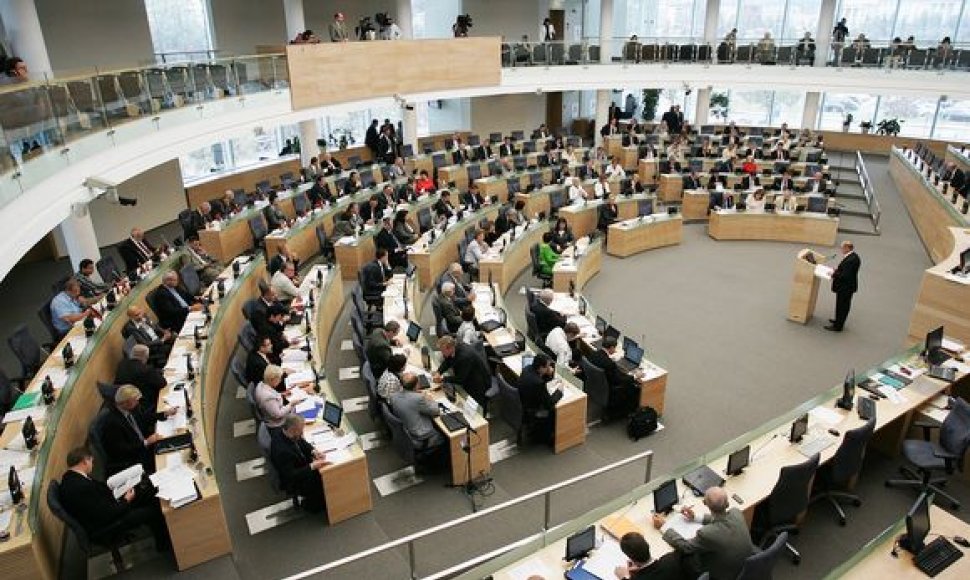"Our aim is to ensure sufficient energy resources at a fair price through projects that are economically viable and beneficial to Lithuania," Energy Minister Arvydas Sekmokas said while presenting the package.
It includes bills regulating the implementation of the country's key energy projects, a new nuclear power plant and a liquefied natural gas (LNG) terminal, as well as a new national energy independence strategy.
The minister said that the legislation, if approved by the Seimas (parliament), would help to turn the energy independence aspiration plans into "real facilities ensuring Lithuania's energy security."
The Cabinet approved the energy package last week. If the Seimas endorses the documents by the end of June, a concession agreement with Japan's Hitachi on the Visaginas nuclear power plant - the country's largest-ever energy project at an estimated 16 billion to 18 billion litas (EUR 4.6-5.2 b) - is expected to be signed by 28 June at the latest.
Hitachi, the strategic investor, would own 20 percent of shares in the Visaginas plant and Lithuania would hold 38 percent. Latvia and Estonia would take stakes of 20 percent and 22 percent, respectively. The ownership stakes could change if Poland joined the project.
The Visaginas project is estimated to cost up to 5 billion euros at current prices and around 6.8 billion euros including interest, inflation, and changes in the investment's value due to exchange rate fluctuations.
The LNG terminal project is being developed by the oil product terminal operator Klaipėdos Nafta (Klaipėda Oil). It is said that the state-controlled company has sufficient financial resources to fund the construction of the terminal. It could raise a total of 510 million litas for the project by using its own resources and borrowed funds.
Report mistake
Successfully sent
Thank you














